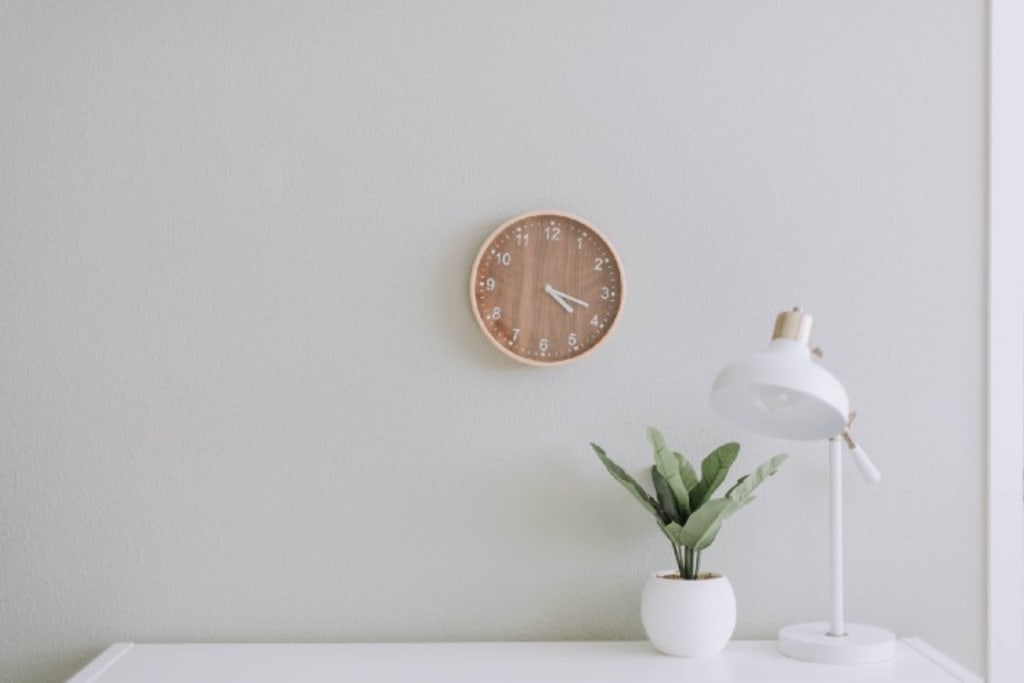Setting Up Your Home Office as a New Freelancer
How to work from home productively

When people hear the word 'freelancer', they often imagine a scruffy, unkempt guy in his pyjamas, working on his laptop in bed or on the couch. And sometimes this may indeed reflect reality. Needless to say, though, this is not an ideal scenario! Ideally, as a freelancer, you should have a separate office or at least a dedicated workspace in another part of your home.
So once you've decided to work from home, the first step is to be clear about where you're going to set up your new workplace. Can you dedicate an entire room to the purpose? That would be ideal, of course. Or can you only spare a small corner of your living room for your desk? Perhaps you even need to use the living room table itself as your desk?
To separate your working life from your family life, it's highly recommended that you set up your own dedicated home office in your apartment or house. Ideally, this is a separate room that is clearly defined as your working space - and which should be respected by other family members. Having a separate home office will also allow you to shut the door in the evening and make it easier to leave work behind.
Out of sight, out of mind, the saying goes. Imagine you're sitting in the lounge watching television in the evening, but the computer in the corner constantly reminds you of all the work you still need to do. I bet you'll find it nearly impossible to switch off and wind down.
If you're unable to claim a room as your home office due to space constraints, try to at least set aside a designated area for your desk and computer, so you still have a clearly defined workspace. This should be distinctly separate from the rest of the room. If you can't separate it spatially, at least separate it visually using aids like wall decals or room dividers. Make this your fixed workplace, the place where you get on with the job without interruptions. This is preferable to working on the sofa or the kitchen table, as it will give you a place to focus on your work. A professional oasis in the home, so to speak!

Whether separate office or dedicated workstation: working from home requires a certain amount of space. Do you really want to have to move the ironing board out of the way to get into your office or tidy everything off the dining table every time you eat a meal? A tidy house, a tidy mind - and the same applies to working from home.
Assuming you do have the option to set up your own home office in a separate room, this is what you'll need to bear in mind:
Furniture and set-up:
You're going to spend a lot of time in your home office, so it pays to make it as pleasant and comfortable as possible. You will need a large enough desk that is the right height for you to work in comfort and a proper office chair with arm and back support that allows you to sit comfortably. Don't skimp on the chair - your body will thank you!
I also highly recommend a footstool under the desk, so you can put your feet up. I have found this to be very comfortable for long stints at the PC, and it has definitely become indispensable for me.
Finally, don't forget to get some storage options for your home office. The last thing you'll want is paperwork piling up on your desk.
Technical equipment:
No home office is complete without a few technical essentials. Let's take a look at what these are.
Lighting
First of all, it is essential to have proper lighting in your home office. Ideally, you should have lighting installed over your reading area, over the computer and behind you so that there's no reflection off the computer monitor.
Computer
It goes without saying that you will need a PC or Mac. As a freelancer writer or creative, you don't usually need an enormous hard drive, but your computer should have plenty of RAM so you can research on the internet and run various applications concurrently. If your budget allows, I would also purchase a laptop in addition to a desktop PC. Technology has a tendency to fail just when you most need it (e.g. just as you're about to finish that important 10,000-word project for a new client), so it is definitely worth having a second machine to work on in an emergency, or if you ever feel like working on the go.
Monitor
As freelancers, we typically stare at the computer screen all day long, so I'd recommend investing in a separate large monitor (at least 17''). This will make working a lot easier and more comfortable.
Internet connection
A broadband or ADSL connection has become commonplace for most of us, and as a freelancer, you will definitely need one in order to upload and download large files and surf at faster speeds so as to not slow you down while researching a term or delivering a file.
Printer
A printer is another indispensable item for your home office. Clients will likely send you NDAs to sign at some point, you may need to print out vendor agreements or contracts, or you may want to print out a text and proofread the hard copy rather than checking it on screen.
External hard disk drive
You may have already experienced a computer crashing without you having backed up your data in a while. It has certainly happened to me before! It is therefore imperative to purchase an external hard disk drive as soon as possible and run daily backups.
Surge protector
A surge protector basically works as a shield, as it blocks excessive voltage spikes and surges. This will protect your electronics from damage, which is obviously a good idea.
Smartphone
A smartphone is important to have if you want the flexibility of being able to step out of your office during office hours and still being available in the sense that you can respond to email enquiries promptly without making your clients wait until you return. The client will feel reassured even if you just briefly acknowledge receipt of their email, e.g. "I'll be back in the office in two hours and will respond to your email then." Having a smartphone means there is no pressure to rush back to the office to check if you've missed any emails, as you can stay on top of things even while you are out and about. You can even open documents and see what files clients have sent you.
Software and tools:
Here is an overview of which tools and software programs freelancer creatives generally need on their computers.
Word processor
If you are using a PC, the Microsoft Office Suite with Word, Excel and PowerPoint is a must-have, and you will most likely already have a recent version installed on your machine. Most files will be sent to you in one of those formats.
Email program
Rather than using a web-based email program, it is advisable to use a standalone email client for all your business correspondence. This will give a more professional impression to your clients and tends to be more secure. Web-based programs, on the other hand, come in very handy when you are working away from the office. Some - like Google's GMail - allow you to integrate your custom domain name with their web-based service.
Project management and invoicing software
Right from the start, it is important to keep a proper record of your projects and log all details correctly and clearly. Many freelancers start out using an Excel sheet, and this will be a workable solution for your first year or two. As your business grows, however, you will probably want to invest in a project management software to make your life easier. (Here is a useful list of ten project management tools for freelancers.) A software like this will let you enter all client details, prices for each client, different client projects and contact person details, set up invoice templates which let you create invoices in just a couple of clicks rather than copying and pasting details into Word to create a manual invoice after every project, and you can also run different reports and track your payments with ease. Using a project management software will certainly cut down the time you spend on admin each month.
You can of course also use a standard invoicing software to bill your clients, but many only calculate in one currency. Dedicated project management programs, on the other hand, allow you to enter multiple currencies, which makes freelancers' lives a lot easier.
File sharing program
You will often need to exchange large files with clients, so it is advisable to work with a file-sharing program such as Dropbox to avoid having to send large email attachments.
Antivirus program
An antivirus program is a definite must in order to minimise risks. This is especially important as you are not only protecting your own data, but your clients' usually sensitive and confidential materials as well. Don't forget to check for updates regularly, and when it comes to renewing your antivirus program, shop around for offers.
OCR software
If you work with client files, for example, sooner or later you will inevitably receive a PDF file to work with. If the client is unable to provide the file in an editable version for some reason, it pays to have an OCR (optical character recognition) software program on your PC that lets you convert PDF files into Word documents in just a few steps. A widely used but fairly pricey OCR program is Abbyy Finereader, and there are also several freeware programs available.

Make it yours
Last but not least, make sure your home office is a fun, comfortable environment. It needs to reflect your personality and personal preferences to make you productive and inspire you, day in and day out.
Add some personal touches that will make you feel inspired and at ease all day long. You might want to put up some family pictures, inspirational quotes, postcards from clients, a plant, or set up an essential oil lamp with invigorating or relaxing scents - whatever floats your boat! If you have a dedicated room for your home office, you can even include a small meditation or workout area for those 15-minute morning and afternoon breaks.
The key is that it's a comfortable space that suits your needs and preferences.
*** Originally published on Medium ***
About the Creator
Nicole Y. Adams
Nicole Y. Adams is a freelance commercial German/English marketing and PR translator and editor based in Brisbane, Australia. 🌴☕ www.nyacommunications.com






Comments (1)
Great insides. Thank you for sharing